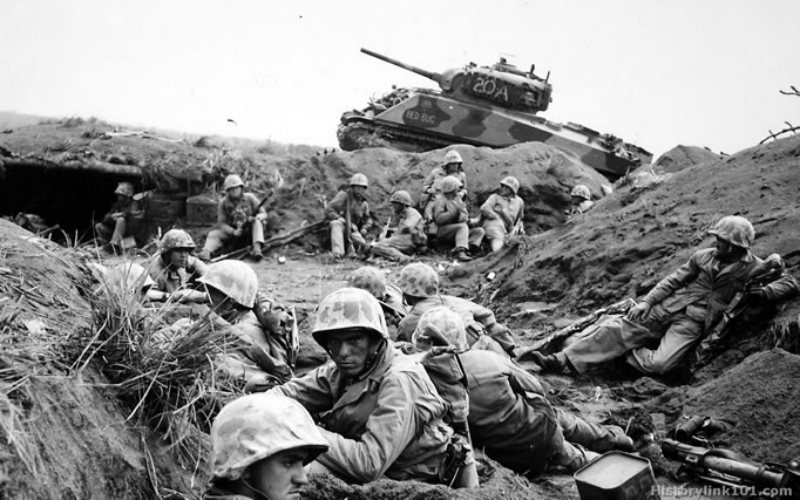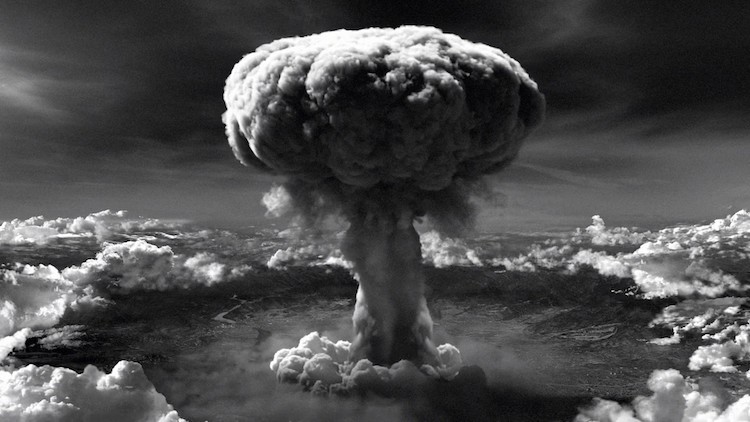I’ve finally gotten around to listening to the last installment of Dan Carlin’s “Supernova in the East” series on his Hardcore History podcast. Carlin does such a wonderful job of telling history, I recommend all of his work.
And he said something in that episode that I’ve been pushing for quite some time. He talked about making decisions in hot blood and in cold blood – that the conduct of the war for America while it was happening was hot-blooded – we made decisions to firebomb cities and target civilians. We wanted to bring Japan to her knees for what she had done to us and much of the Far East (but mostly, in our eyes, to us). We wanted to bury them.

And many now sit here on the other side of decades of comfort, barely understanding what it was like to have a truly barbaric and single-minded enemy on the other side of the world – an enemy who mercilessly unleashed an attack upon Americans without provocation so that they could protect their vision of East Asian dominance.
Ask the Koreans what they know about the Japanese. They have an entire museum dedicated to the Japanese occupation – complete with devices of torture – not far from where I live. Or the Chinese. Nanjing is a name synonymous with the brutal murder of hundreds of thousands at the hands of the Japanese. The wounds run deep in a people brutally subjugated for nearly half a century. I got a free cab ride out of a Chinese driver in Kunming in 2012 because the grandfather of one of the people with whom I was traveling flew supplies to the Chinese over the Himalayas in their struggle against the Japanese. 2012. Over 70 years after those events, and this cab driver tells me “No charge. His grandfather fought against the Japanese!”
Now I’m not writing this to dredge up hatred of the Japanese. I love Japan and its people – it’s an incredible place that has risen from its past to do great things. This writing is not even about that really. This is about history and context. It’s about putting ourselves in the time and understanding a bit more about the thoughts and decisions of those who lived them. Yes, some of the things the people of the past did were wrong – and there are no excuses for those things.
But when it comes to how we conducted ourselves in the past, there are things that the people of today could never understand, and so to condemn a generation for its decisions in things like dropping atomic bombs is too near-sighted to be of any use.
The actions of the United States in the past have been despicable at times – we must own up to the obvious points of our history which reflect this. But overall, the ideals of the United States have done great good in the world, and will continue to lead (believe it or not) while the rest of the world lags. One of the greatest examples in the world comes from the people on the southern half of the Korean peninsula, who came out of that Japanese occupation and a tragic war not long after to become an economic and cultural powerhouse, built on a foundation set by the ideals of the United States.
Carlin finishes his last episode of “Supernova” with some observations. We can be fairly certain that the cost in lives – both Japanese and American (and other allies) – if we had invaded the Japanese home islands would have been astronomical. Okinawa proved that to us to the tune of some 48,000 US casualties (to include 12,000 dead). Some believed the combined estimated casualty count of an invasion of the Japanese homeland could have easily exceeded one-million. So, and especially in the context of those times as we wound down a grueling two-front war that cost over 400,000 dead and over 600,000 wounded, the decision to drop the bombs was absolutely right for the people of that time.

But Carlin goes further. He claims the dropping of the bomb saved even more lives because it showed us what could happen. If we had waited until more of the world was armed with the weapon to figure out what it was like, it may have been too late for us all.
Good point.
So let me end with my typical reminder – history is complex, and unless we have actually lived it (and even if we have in some cases), we know very little that would let us judge the people of those times fairly. What we can do though is to study and learn from the times and the people in as much as we can understand them so we may approach the future with wisdom and make better decisions when the time comes.
